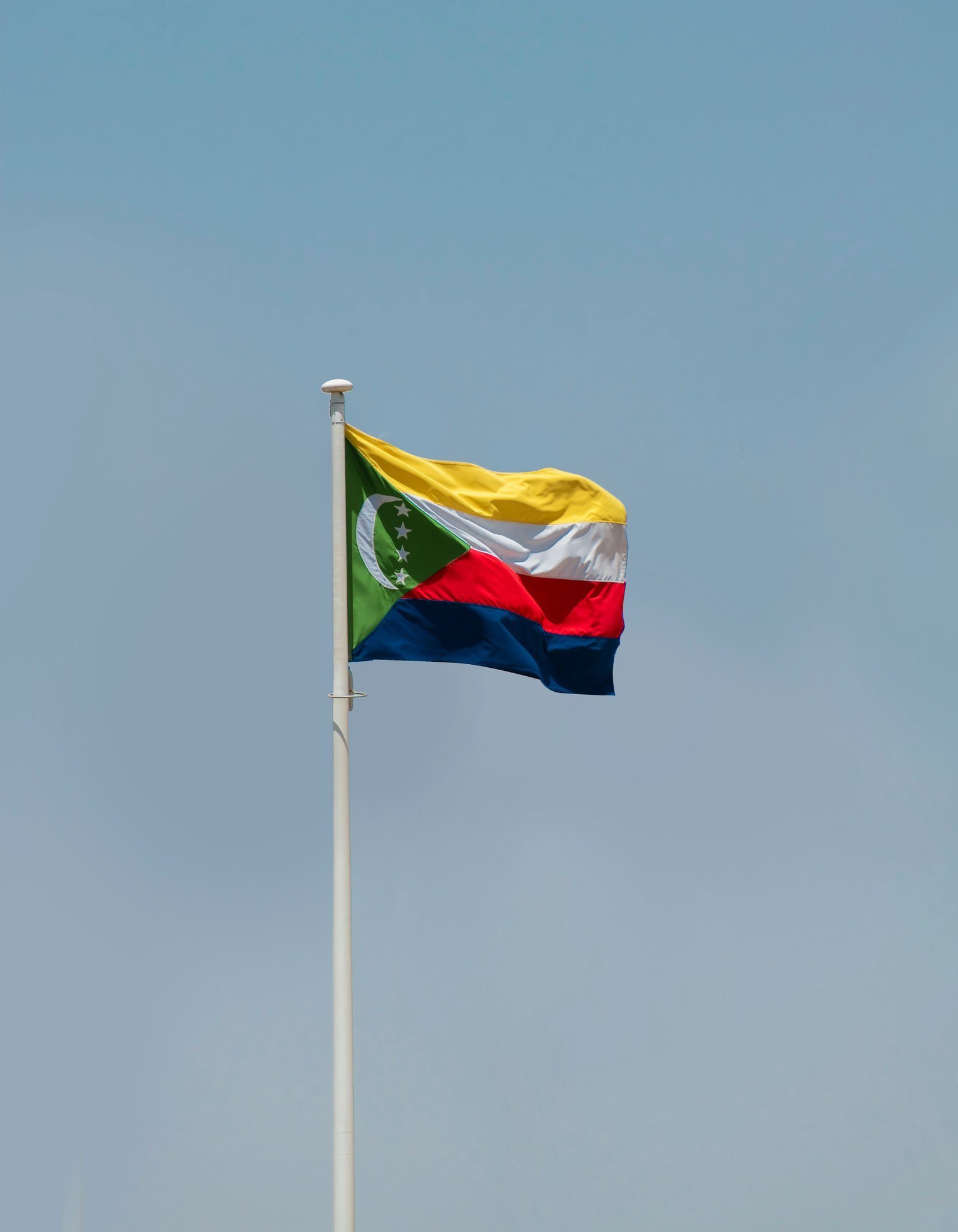
Introduction
The Comoros National Anthem, officially known as “Udzima wa ya Masiwa” (The Union of the Great Islands), is a powerful symbol of national pride and unity for the people of Comoros. This anthem, with its rich history and deep significance, reflects the struggles, aspirations, and triumphs of the Comorian people.
Lyrics
The complete original lyrics of the Comoros National Anthem are as follows:
Udzima wa ya Masiwa,Udzima wa ya Masiwa,Udzima wa ya Masiwa,Udzima wa ya Masiwa.
Ya Masiwa ya Chundzu,Ya Masiwa ya Chundzu,Ya Masiwa ya Chundzu,Ya Masiwa ya Chundzu.
Udzima wa ya Masiwa,Udzima wa ya Masiwa,Udzima wa ya Masiwa,Udzima wa ya Masiwa.
Ya Masiwa ya Chundzu,Ya Masiwa ya Chundzu,Ya Masiwa ya Chundzu,Ya Masiwa ya Chundzu.
Udzima wa ya Masiwa,Udzima wa ya Masiwa,Udzima wa ya Masiwa,Udzima wa ya Masiwa.
Ya Masiwa ya Chundzu,Ya Masiwa ya Chundzu,Ya Masiwa ya Chundzu,Ya Masiwa ya Chundzu.
These lyrics, sung in the Comorian language, celebrate the unity and strength of the islands that make up the nation of Comoros. The repetition of the verses emphasizes the importance of unity and solidarity among the people.
Significance
The Comoros National Anthem holds great significance for the people of Comoros. It serves as a reminder of their shared history, culture, and values. The anthem’s lyrics speak to the pride and resilience of the Comorian people, highlighting their determination to overcome challenges and build a prosperous future.
Through its powerful words and melody, the anthem instills a sense of national identity and belonging among the citizens of Comoros. It is often sung during important national events, such as Independence Day celebrations and sporting events, evoking a strong sense of patriotism and unity.
Historical Context
The Comoros National Anthem was adopted shortly after the country gained independence from France on July 6, 1975. The anthem was composed by Said Hachim Sidi Abderemane, with lyrics written by Said Ibrahim Ben Ali.
At the time of independence, the Comorian people were filled with hope and optimism for the future. The anthem was seen as a powerful symbol of their newfound freedom and sovereignty. It represented the aspirations of the Comorian people to build a prosperous and united nation.
Throughout the years, the anthem has remained a constant reminder of the struggles and achievements of the Comorian people. It has become an integral part of the country’s cultural heritage and a source of national pride.
Contemporary Relevance
Even in contemporary times, the Comoros National Anthem continues to hold immense relevance for the people of Comoros. It serves as a unifying force, bringing together individuals from different backgrounds and regions under a shared national identity.
The anthem’s message of unity and solidarity is particularly important in a country that is made up of multiple islands and diverse ethnic groups. It reminds the citizens of Comoros of the strength that comes from embracing their differences and working together towards common goals.
Furthermore, the anthem serves as a source of inspiration and motivation for the younger generation. It encourages them to embrace their Comorian heritage, preserve their cultural traditions, and contribute to the development of their nation.
As Comoros continues to navigate the challenges of the modern world, the anthem remains a constant reminder of the values and principles that unite the nation.
In conclusion, the Comoros National Anthem is a powerful symbol of national pride, unity, and resilience. Its lyrics and melody evoke a deep sense of patriotism among the citizens of Comoros, reminding them of their shared history and aspirations. As the country moves forward, the anthem will continue to serve as a beacon of hope and inspiration for generations to come.

One thought on ““The Comoros National Anthem: Symbolizing Unity, Pride, and Resilience””